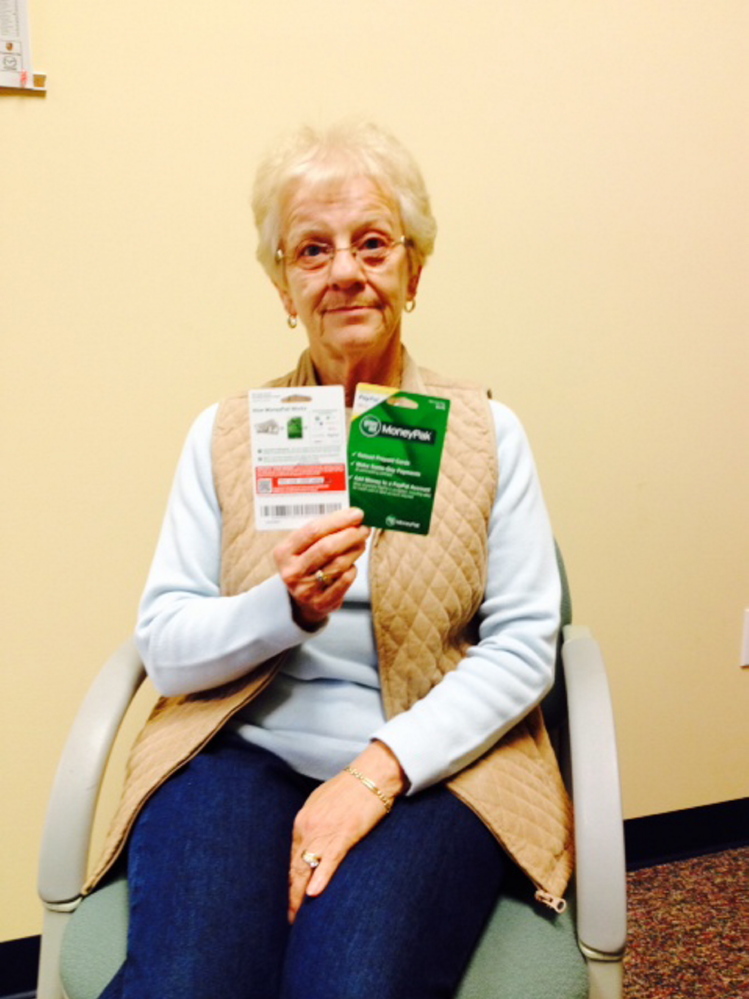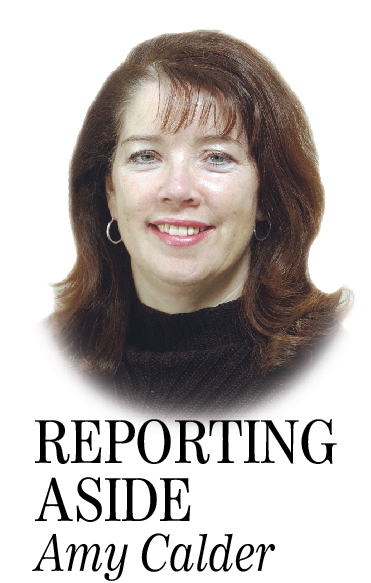ROSE BICKFORD IS not a stupid person.
Having worked as a bookkeeper in the finance department at Waterville City Hall for 17 years before retiring a year ago, she certainly is good with money and knows enough not to take any wooden nickels.
Yet when a man with a foreign accent called her cellphone Tuesday, saying she had won a Mercedes-Benz and $2.4 million, she believed it.
Maybe she was quick to accept what the man said because she is particularly vulnerable right now with her husband suffering from cancer and the couple watching every cent as they pay steep medical bills.
Still, she took the bait when the man on the phone said she must pay $750 for the Mercedes to be shipped from Limestone to Fairfield, where she lives.
He instructed her to stay on the phone with him, go to the local Rite Aid, buy two MoneyPak cards for $500 and $250 each and read him the numbers on the back of the cards, which she did and her money went into his account.
Everything seemed fine until he told her she needed to send another $10,000 to pay for the Mercedes to go through U.S. Customs. Suddenly she felt sick.
“I said, ‘I don’t have that kind of money,'” recalled Bickford, 66. “I just feel so dumb. I’ve got a brain in my head. They got me for $750, and I really can’t afford it.”
When Bickford came to see me Tuesday, she was feeling particularly bad because, had this not happened, she would have been with her husband at the Alfond Cancer Center, where he goes twice a week for treatment.
She instead had called him to say she’d done something stupid and must take care of it. She told him to go to the Alfond center without her and she would explain later.
Then she headed to the Fairfield Police Department to report the scam, holding on to a slim hope she might be able to get her money back.
Police Officer Matt Wilcox took her report and is investigating the scam, but as he told Bickford, finding the person responsible is nearly impossible.
He has dealt with such scams before, and the people perpetrating them use all kinds of schemes to bilk money out of people — and they succeed, he said. The scam artists find people’s names, addresses, ages and phone numbers via Google or other online search engines, call them on a phone that can not be traced or use a phone app that disguises where they are calling from, and work their evil magic.
They target older people because they tend to be very trusting, according to Wilcox.
“They caught Rose right at the time when she was most vulnerable,” he said.
Wilcox said people try to scam his own mother, so he is particularly sympathetic when it comes to older people being targeted.
“My mother gets calls like this all the time, and I’ve gotten on the phone and threatened the people, and they still call back,” he said. “What I told my mother is, if she gets more calls, just ask them what their federal ID number is. That makes it sound more governmental. She said that every time she does that, they usually hang right up.”
Scams come in all scenarios, he said. Several retired people have come to the police station, carrying their computers, because a scam artist has convinced them porn was discovered on their computers, the government has locked their computers and if they don’t pay money, they will be arrested.
“I get older people right beside themselves, thinking they’re going to jail for this,” Wilcox said. “One guy was on his way to get money to pay them and decided to stop here (at the Police Department) first.”
Bickford is embarrassed and kicking herself for falling for the scam, but she wanted to tell her story to warn others.
“I don’t know what mind I was in or what I was thinking,” she said. “It hit me at a difficult time and I just went through with it. I don’t want to see anybody else get stuck for that.”
Wilcox is looking into the case but knows the likely outcome.
“That money is gone,” he said. “There’s absolutely nothing I’m going to be able to do to get her money back.”
He did have advice for anyone faced with a similar scam:
“If it’s too good to be true, it is. And if they’re offering a service you did not request, you’ve got to be very cautious.”
A footnote: As Bickford was telling me her story Tuesday, her cellphone rang. It was the scam artist himself, so she handed me the phone.
He instructed me to go to the bank, take out several thousand dollars, drive to Rite Aid to get more MoneyPaks, scratch off the backs of the cards and read him the numbers.
When I told him I was a newspaper reporter, he hung up.
Amy Calder has been a Morning Sentinel reporter 26 years. Her column appears here Mondays. She may be reached at acalder@centralmaine.com
Send questions/comments to the editors.




Comments are no longer available on this story